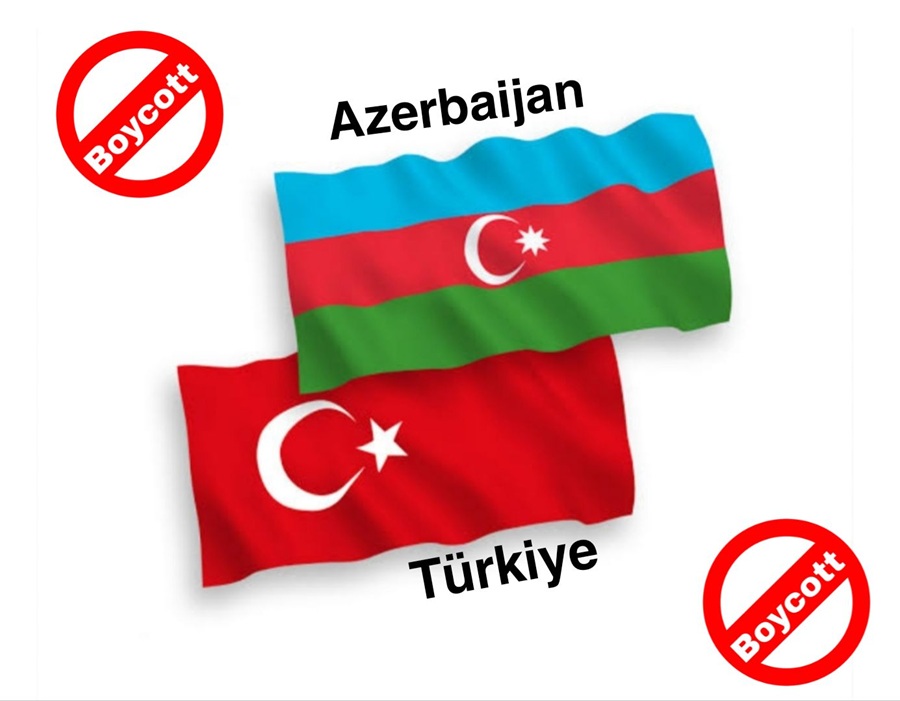Introduction
In the wake of recent geopolitical tensions, Indian tourists and businesses have initiated a significant boycott against Türkiye and Azerbaijan. This movement stems from the perceived support these nations extended to Pakistan following the Pahalgam terror attack in April 2025. The boycott has not only affected tourism but has also led to economic repercussions for the countries involved.
Reasons Behind the Boycott
The catalyst for the boycott was the public support Türkiye and Azerbaijan expressed for Pakistan after India's Operation Sindoor, a military response to the Pahalgam attack. This stance was met with widespread disapproval in India, leading to calls for a boycott of travel and trade with these nations. Social media campaigns amplified the sentiment, urging citizens to reconsider their travel plans and business dealings with Türkiye and Azerbaijan.
Actions Taken by Indian Companies and Citizens
The response from Indian businesses and the public has been swift and decisive:
Travel Industry Measures: Major travel agencies like EaseMyTrip and Cox & Kings have suspended all travel offerings to Türkiye and Azerbaijan. EaseMyTrip issued advisories recommending travel to these countries only if absolutely necessary. Similarly, Cox & Kings halted new travel packages to these destinations, aligning with the national sentiment of protest.
Tourism Booking Trends: MakeMyTrip reported a 60% drop in new bookings to Türkiye and Azerbaijan, accompanied by a 250% increase in cancellations. EaseMyTrip observed a 22% rise in cancellations for Türkiye and 30% for Azerbaijan. These figures underscore the significant impact of the boycott on travel plans.
Trade Actions: In Udaipur, a major hub for marble processing, the industry has suspended ₹3,000 crore worth of marble imports from Türkiye. This decision reflects a broader move to reduce economic ties with countries perceived as unsupportive of India's interests.
Economic Impact on Türkiye and Azerbaijan
The boycott by Indian tourists and businesses has potential economic implications for Türkiye and Azerbaijan, particularly in the tourism sector:
Türkiye's Tourism Revenue: In 2024, Türkiye achieved a record $61.1 billion in tourism revenue, hosting 52.6 million international tourists. Indian tourists contributed over ₹4,000 crore to this figure in the previous year. The current boycott threatens to reduce this income, especially considering the high spending patterns of Indian travelers.
Azerbaijan's Tourism Sector: While specific figures for Indian tourist contributions to Azerbaijan's economy are less detailed, the country has been a growing destination for Indian travelers. The sharp decline in bookings and increased cancellations indicate a significant potential loss in tourism revenue for Azerbaijan as well.
Shift in Travel Preferences
In response to the boycott, Indian travelers are redirecting their international travel plans to alternative destinations:
Preferred Alternatives: Countries like Russia, Germany, Singapore, Czech Republic, Hungary, Georgia, Serbia, Greece, Thailand, and Vietnam are emerging as popular alternatives.
Tour Operator Recommendations: Travel agents are actively promoting these destinations, highlighting similar price points and experiences to those previously sought in Türkiye and Azerbaijan. This strategic redirection aims to maintain travel enthusiasm while aligning with national sentiments.
Conclusion
The boycott of Türkiye and Azerbaijan by Indian tourists and businesses represents a significant intersection of geopolitics and economic action. The collective response underscores the influence of public sentiment on international relations and economic engagements. As the situation evolves, the long-term impacts on the tourism sectors of Türkiye and Azerbaijan will become more apparent, potentially prompting these nations to reassess their diplomatic positions and engagement strategies with India.
